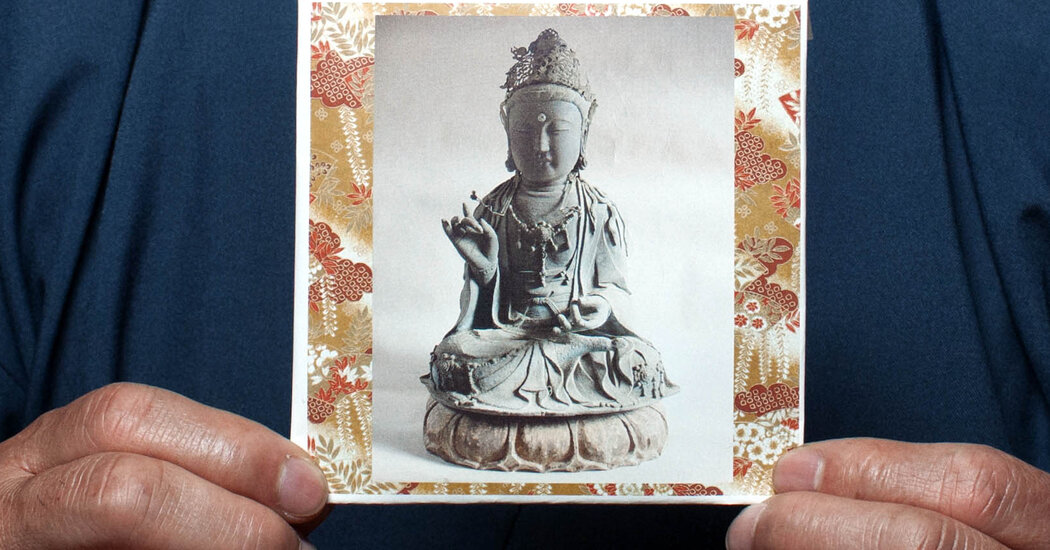The Supreme Court of South Korea ruled on Thursday that a Buddhist statue currently in government custody must be returned to a Japanese temple, ending a decade-old dispute between temples in both countries.
South Korean thieves stole the 20-inch gilded bronze statue in 2012 from a Buddhist temple on Tsushima, a Japanese island halfway between the two countries. The incident added yet another dispute to the contentious relations between the two countries, which have long bickered over historical grievances.
The thieves were caught in South Korea while trying to sell the statue, which has been designated an important cultural asset in Japan. But Buseoksa, a Buddhist temple in western Korea, claimed the artifact, saying it was made there in the 14th century. The temple won a court injunction in 2013 preventing its return to Japan.
A legal battle ensued between Buseoksa and the South Korean government. The Japanese temple, Kannonji, and Tokyo were not part of the lawsuit but have demanded the statue’s return. There was no evidence that the artifact had been brought to Japan illicitly, Kannonji said.
In a ruling in 2017, a provincial court in South Korea said the statute should be given to Buseoksa on the grounds that it had been taken centuries earlier by Japanese pirates. But in February, an appeals court ruled that the statue belonged to the Japanese temple because it had owned it long enough peacefully and publicly.
In a final say on the matter, the Supreme Court said on Thursday that the current Buseoksa was likely to be the same temple where the statue was originally made. But it added that the rightful owner was the Japanese temple for the same reason cited by the appeals court.
Buseoksa called the ruling outrageous. “It essentially legalized the plunder of cultural assets, saying that if you keep the plunder long enough, it becomes yours,” Buseoksa’s head monk, the Venerable Wonwoo, said on the phone. “It means that if you lose something through looting, you lose it forever.”
The statue represents a bodhisattva known as Kanzeon in Japan and Gwaneum in South Korea.
Even after the statue is returned to Japan, Buseoksa said that Buddhists in South Korea would continue their campaign to persuade Japan to return thousands of ancient artifacts that they said had been taken centuries ago by pirates and invaders from Japan.


